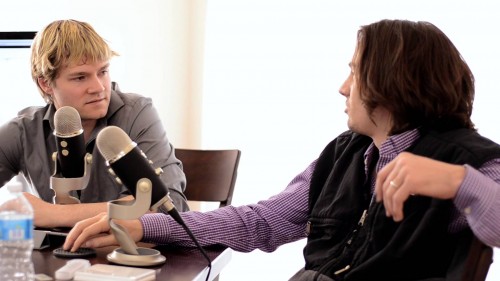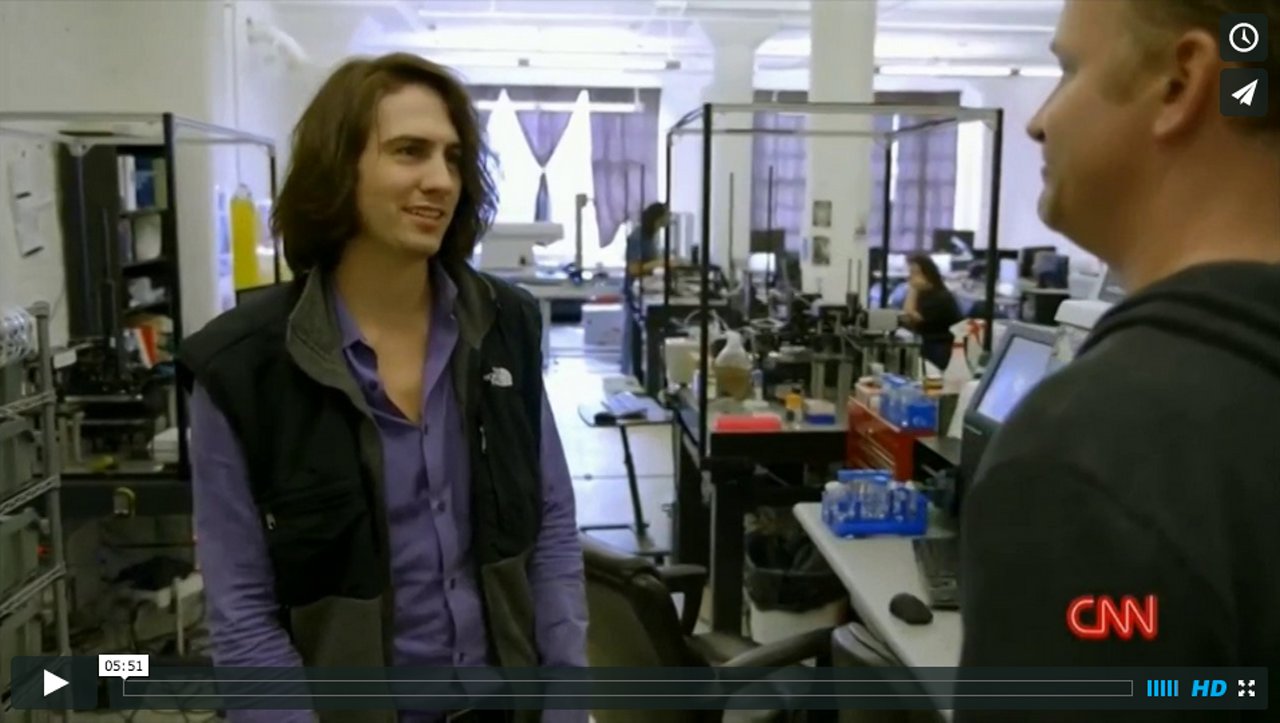by Pete Shanks
(Originally appeared on HuffPo.)

Austen Heinz of Cambrian Genomics has been trolling hard lately, as blogger Josh Cunningham notes. That is, he’s been spouting provocative opinions to get attention. And it seems to be working, from his point of view.
Not only was Heinz involved in the vagina bio-hack nonsense, but he told the Wall Street Journal last June, “I can’t believe that after 10 or 20 years, people will not design their children digitally.” And he doubled down in the San Francisco Chronicle last week:
Anyone in the world that has a few dollars can make a creature, and that changes the game. And that creates a whole new world. … It is the most powerful technology humans have ever created. Hydrogen bombs can destroy whole planets, but this is a technology that can create planets. This is the greatest human achievement of all time — the ability to read and write life, because that’s who we are.
He also told CNN last April:
I think it’ll get very hot within the next few years in editing genomes for babies. … We could potentially see like an arms race among families…. We will eventually be able to write the code, not only to fix our current mistakes but also to fix mistakes as we age, and that’s going to be critical to living forever.
It’s pretty obvious why we wouldn’t want to do something bad. We wouldn’t want the industry to be regulated. So, “How do we democratize creation without killing everyone?” is basically the question.
Now, that is some quality trolling.
Synthetic biology, as a field, has some skilled practitioners of the art. Until Heinz came along, perhaps the most accomplished was George Church, recently seen in the crowd on stage at the last Colbert Report (at the 15:21 mark in this clip).
But Church (who was once an adviser to Cambrian), and Drew Endy, and other pioneers of synthetic biology, have never rejected regulation; indeed, they call for it — one may disagree with the limits they would choose, but at least there is some possibility of dialog. Heinz, however, as Marcy Darnovsky told the Chronicle, is espousing a kind of “techno-libertarianism.”
The more common approach, as described by Claire Marris in a new paper in Science as Culture, is somewhat gentler. In the minds of many scientists, the goal is to educate the public, but the title Marris chose suggests that the reality is better described with a different emphasis:
“The Construction of Imaginaries of the Public as a Threat to Synthetic Biology”
(There is something delightfully Brechtian about the concept: The people have forfeited the confidence of the scientific establishment and must therefore be replaced.)
The imaginary public that Heinz is appealing to, however, is rather different from the one most serious analysts, whether academic, commercial or governmental, visualize when considering the “problem” of creating acceptability for synthetic biology. His consists of cool techies, some of whom, such as Peter Thiel, have the cash to invest in Cambrian. That’s his core audience.
Heinz is clearly reveling in being a “bad boy.” There are those who think he is naive about publicity; to the contrary, he seems to know exactly what he is doing. TheChronicle piece provoked several posts of varying quality (here, here, here, and here), and a variety of comments. Some were supportive, but there were many sarcastic variants on “What could possibly go wrong?”
Criticism is unlikely to faze Heinz, who is probably operating on the tried-and-true premise that any publicity is good publicity. But if Heinz and his ilk are allowed to run free, it’s the rest of us that will live in the world they make. Said Darnovsky:
We have to take seriously people like Austen Heinz who say they want to modify future generations of human beings and upgrade the human species. I think that technical project is far more complicated than they acknowledge. Nonetheless, their story about what we should be striving for as human beings, as a society, I think is very troubling.
